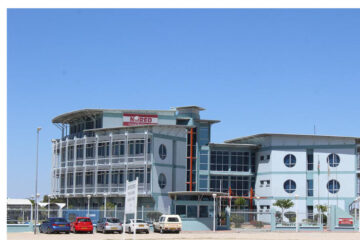Herta-Maria Amutenja
The Ministry of Home Affairs, Immigration, Safety, and Security (MHAISS) has reported that it has issued a staggering 92,330 birth certificates from January to December this year.
This is according to Deputy Minister Lucia Witbooi while speaking during the cabinet committee briefing yesterday.
Witbooi stressed the importance of the birth registration process, asserting, “Birth registration is, therefore, a human right. It establishes the child’s legal identity, which, together with the ascertainment of that child’s citizenship, is essential for accessing a range of services such as education, healthcare and social protection.”However, amidst this achievement, the ministry revealed that out of the 116,354 Identity Cards (IDs) printed during the same period, a staggering 39,168 IDs remain uncollected at the ministry’s various offices across the country. Addressing this challenge, Witbooi urged applicants to collect their IDs promptly, either at the specified office or by requesting a transfer to the Ministry of Home Affairs office in their respective regions. Additionally, Witbooi acknowledged a backlog in capturing historic marriage records, totalling 38,543, and a decrease in historic death records to 55,578.
Turning to law enforcement matters, Witbooi highlighted investments in the Namibian Police Force by allocating N$92,765,000 for a new fleet of cars. Corporate responsibility efforts from the Road Fund Administration added N$9,593,146.50 to procure 22 vehicles, resulting in the acquisition of 113 new motor vehicles, three boats and two trailers.
Moreover, the ministry announced the ground-breaking ceremony for new police facilities in Ncamagoro, Kavango West Region, Greenwell Matongo and Kalimbeza in the Zambezi Region.
Witbooi emphasised the ministry’s response to challenges it faces at border posts and rural policing areas when it comes to accommodation of police officers and office space, noting the construction of prefabricated structures at various locations. Witbooi further highlighted Nampol’s six cross-border operations with neighbouring countries, addressing issues such as crime and joint sea surveillance operations.
She underscored collaborative efforts in cross-border operations.
“A total number of 329 members were trained in critical areas of policing such as criminal investigation, gender-based violence, and contemporary crimes, such as cybercrime and money laundering,” she said.




